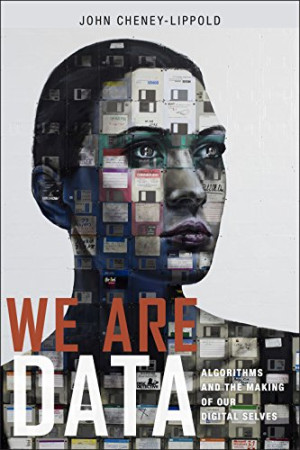 Zusammenfassungen
Zusammenfassungen
 What identity means in an algorithmic age: how it works, how our lives are controlled by it, and how we can resist it Algorithms are everywhere, organizing the near limitless data that exists in our world. Derived from our every search, like, click, and purchase, algorithms determine the news we get, the ads we see, the information accessible to us and even who our friends are. These complex configurations not only form knowledge and social relationships in the digital and physical world, but also determine who we are and who we can be, both on and offline. Algorithms create and recreate us, using our data to assign and reassign our gender, race, sexuality, and citizenship status. They can recognize us as celebrities or mark us as terrorists. In this era of ubiquitous surveillance, contemporary data collection entails more than gathering information about us. Entities like Google, Facebook, and the NSA also decide what that information means, constructing our worlds and the identities we inhabit in the process. We have little control over who we algorithmically are. Our identities are made useful not for us—but for someone else. Through a series of entertaining and engaging examples, John Cheney-Lippold draws on the social constructions of identity to advance a new understanding of our algorithmic identities. We Are Data will educate and inspire readers who want to wrest back some freedom in our increasingly surveilled and algorithmically-constructed world.
What identity means in an algorithmic age: how it works, how our lives are controlled by it, and how we can resist it Algorithms are everywhere, organizing the near limitless data that exists in our world. Derived from our every search, like, click, and purchase, algorithms determine the news we get, the ads we see, the information accessible to us and even who our friends are. These complex configurations not only form knowledge and social relationships in the digital and physical world, but also determine who we are and who we can be, both on and offline. Algorithms create and recreate us, using our data to assign and reassign our gender, race, sexuality, and citizenship status. They can recognize us as celebrities or mark us as terrorists. In this era of ubiquitous surveillance, contemporary data collection entails more than gathering information about us. Entities like Google, Facebook, and the NSA also decide what that information means, constructing our worlds and the identities we inhabit in the process. We have little control over who we algorithmically are. Our identities are made useful not for us—but for someone else. Through a series of entertaining and engaging examples, John Cheney-Lippold draws on the social constructions of identity to advance a new understanding of our algorithmic identities. We Are Data will educate and inspire readers who want to wrest back some freedom in our increasingly surveilled and algorithmically-constructed world. Dieses Buch erwähnt ...
Dieses Buch erwähnt ...
 Begriffe KB IB clear |  Algorithmus Algorithmus algorithm
, algorithm
,  Digitalisierung
, Digitalisierung
,  facebook
, facebook
,  Freiheit Freiheit freedom
, GenderGender
, freedom
, GenderGender
,  Google
, Informationinformation
, Roe v. Wade Google
, Informationinformation
, Roe v. Wade
|
 Dieses Buch erwähnt vermutlich nicht ...
Dieses Buch erwähnt vermutlich nicht ... 
 Tagcloud
Tagcloud
 Zitationsgraph
Zitationsgraph
 Zitationsgraph (Beta-Test mit vis.js)
Zitationsgraph (Beta-Test mit vis.js)
 8 Erwähnungen
8 Erwähnungen 
- Hackers - heroes of the computer revolution (Steven Levy) (2010)

- What Is Digital Sociology? (Neil Selwyn) (2019)

- The Democratization of Artificial Intelligence - Net Politics in the Era of Learning Algorithms (Andreas Sudmann) (2019)


- New Perspectives in Critical Data Studies - The Ambivalences of Data Power (Andreas Hepp, Juliane Jarke, Leif Kramp) (2022)


- The Datafied Welfare State - A Perspective from the UK (Lina Dencik)


- The Value Dynamics of Data Capitalism - Cultural Production and Consumption in a Datafied World (Göran Bolin)


- The Datafied Welfare State - A Perspective from the UK (Lina Dencik)
- Kommunizieren und Herrschen - Zur Genealogie des Regierens in der digitalen Gesellschaft (Janosik Herder) (2023)


- KI für Lehrkräfte - ein offenes Lehrbuch (Colin de la Higuera, Jotsna Iyer) (2024)


- Momente der Datafizierung (Markus Unternährer) (2024)



 Co-zitierte Bücher
Co-zitierte Bücher
 Volltext dieses Dokuments
Volltext dieses Dokuments
 Bibliographisches
Bibliographisches 
 Beat und dieses Buch
Beat und dieses Buch
Beat hat dieses Buch während seiner Zeit am Institut für Medien und Schule (IMS) ins Biblionetz aufgenommen. Beat besitzt kein physisches, aber ein digitales Exemplar. (das er aber aus Urheberrechtsgründen nicht einfach weitergeben darf). Aufgrund der wenigen Einträge im Biblionetz scheint er es nicht wirklich gelesen zu haben. Es gibt bisher auch nur wenige Objekte im Biblionetz, die dieses Werk zitieren.




















 Biblionetz-History
Biblionetz-History